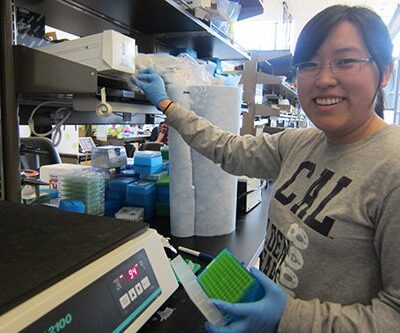Eba Kim Rose Hills
Investigating the Neural Basis of Prosociality
In a recent groundbreaking paper by Bartal et al., Science 2011, entitled Empathy and Pro-Social Behavior in Rats, researchers discovered that when one rat of a pair of cage mates was placed in a restrainer while the other rat was free, the free rat learned to emancipate the restrained rat. This helping or empathic behavior persisted even in the absence of potential contact with the newly freed rat, which proved that the free rat engaged in this behavior for the sole purpose of liberating the trapped rat instead of expecting to socially interact with its cage mate. The Kaufer Laboratory in the Integrative Biology Department is interested in understanding the neural basis of such empathic or prosocial behaviors. Their approach is truly integrative, in that they study the molecular, physiological, and behavioral aspects of social behaviors, which has far-reaching clinical implications for neurological disorders such as autism and depression.
Message To Sponsor
The Summer Undergraduate Research Fellowship opens up a world of research that I know I would not have been able to partake in without your generous donation. I look forward to be finally be able to apply the various skills, knowledge, and techniques that I have obtained during my coursework at UC Berkeley in an actual laboratory setting as well as learn new procedures to keep up with current research. This summer will be a productive and exciting use of time for all involved in this amazing program.